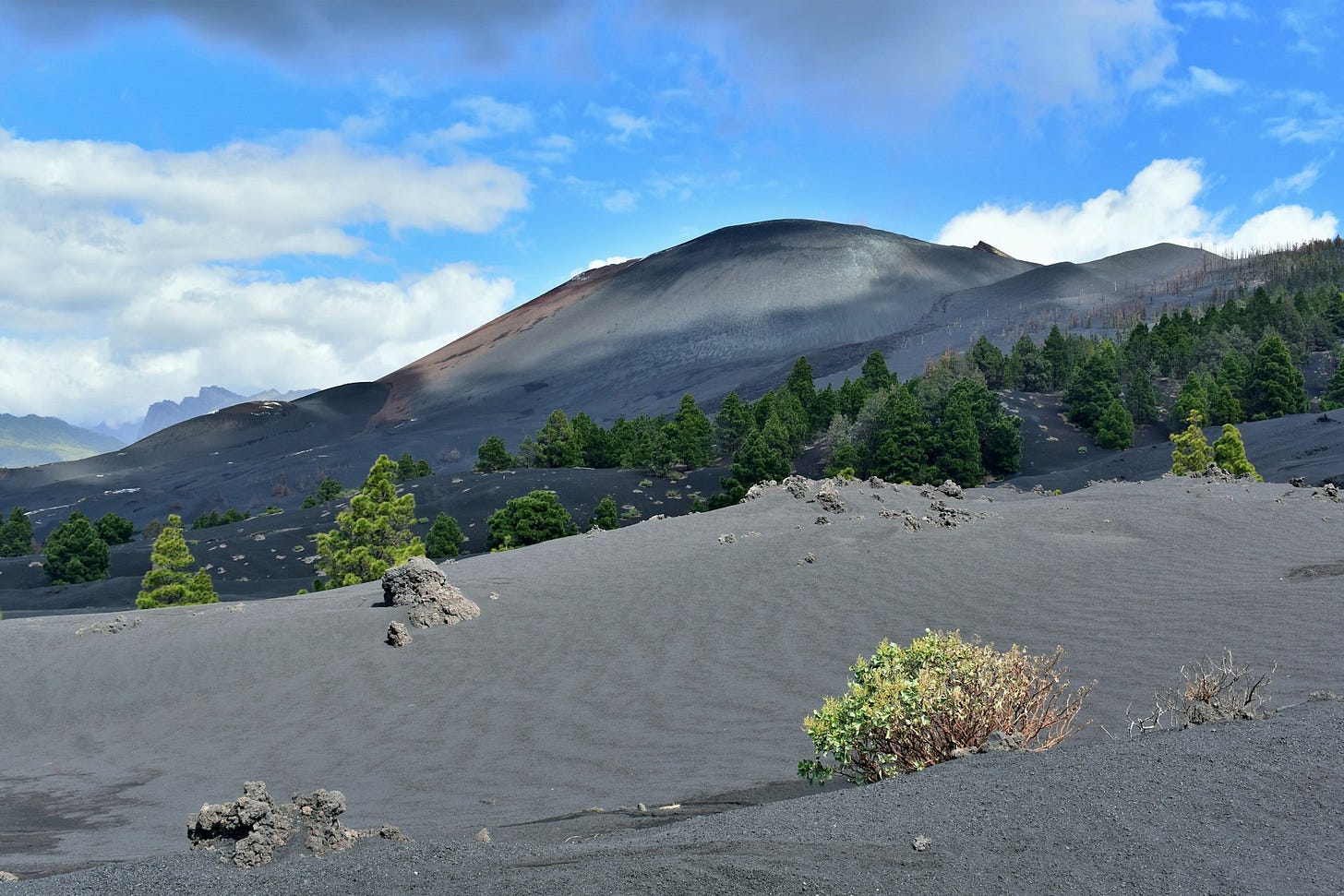When I was watching La Palma, I was thinking about how, even though the show was silly, things like this seep into our brain and give us the sense that we are in control of our fate. Thanks to the power of love, our main characters survive a series of absurd disasters. The message is that as long as we love our family enough we’ll be able to survive anything.
The mini-series has main characters and extras. In order to believe that we could save our family from a volcano and a tsunami, we need to believe that no one else really loves their family like we love ours. The easiest way to do that is to not have any minor characters. It requires, well, a certain self-centeredness. Main character energy, if you will.
From Merriam-Webster:
Main character energy is an informal Internet expression for self-assured bearing or behavior.
Caregivers channel main character energy to make it through seemingly impossible bureaucratic obstacles and maintain hope for a cure, no matter what the odds. It’s a single mindedness we need to channel in order to succeed. We may not be outrunning a volcano, but it feels that way sometimes. Outrunning a volcano might have better odds.
In addition to main character energy, there is also main character syndrome, which I am amused to find is included on WebMD. Few family caregivers could be “diagnosed” with this,1 but there is one symptom I see pretty often:
“If the other people in your life aren’t secondary characters, you may see them as villains. Essentially, people either rally around or work against you.”
It makes perfect sense that when someone is facing a series of life or death challenges, we cannot fully recognize that the people around us are living their own lives. Our world revolves around the patient, the diagnosis, and the struggle. How can they not center their lives around our battle?
This is how so many caregivers feel abandoned by their friends and family, while their friends and family swear it was the caregiver who pushed them away. Even when everyone is doing their best, people end up isolated.
I planned on writing something about how having unshakable faith in a happy ending — as if our real lives are movies — is harmful when the odds are impossible. I’m not sure that’s right, though.
People who have unshakable faith in a happy ending when it’s impossible are unable to acknowledge reality. I was reversing cause and effect.
They have to become delusional because reality would destroy them. Their delusion is a coping mechanism. Instead of crumbling, they are their most driven, most charismatic self. They have a sound track. They are a hero.
So the drawback to this strategy isn’t that belief in the impossible will hurt us when we have to face reality. If people could face reality they would. If facing reality was a useful strategy, they would use it. Delusion can be an effective way to deal with an insurmountable challenge. Delaying devastation doesn’t necessarily make it easier or harder.
The drawback to this strategy is that when we believe we can steer fate, we imagine others can, too. Which makes people less empathetic to each other. If I know I’m going to save my kids from a volcano and a tsunami, why aren’t the other parents doing the same?
Instead of sympathy, people in super hero mode hold other caregivers to impossible standards. To do otherwise forces heroes back into reality.

No one can be diagnosed with this by a doctor, since it’s not an accepted medical term. It’s an expression for the negative aspects of main character energy.



